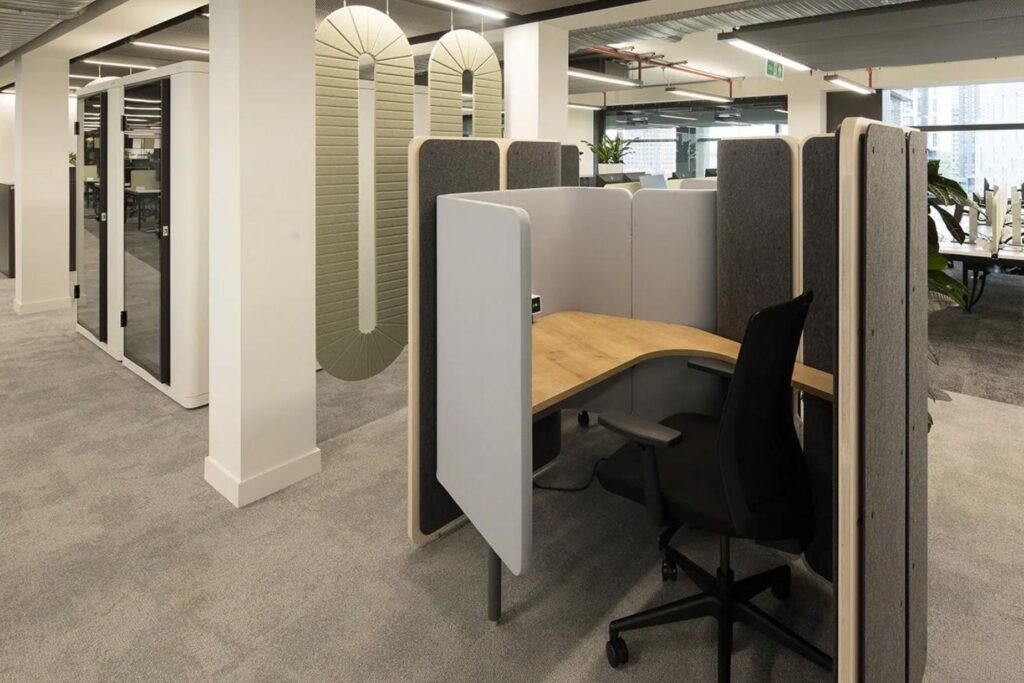Accommodating Neurodiversity in Your Office Environment
Your office design should support your entire workforce. This means creating an inclusive space for all styles of work. The neurological differences between your employees should always be considered to ensure your office provides optimal conditions for everyone to work at their best. Neurodiversity in the office, which encompasses autism, ADHD, dyslexia, and other neurological differences, adds diverse perspectives, greater creativity, and innovative ideas. However, to harness this and improve employee satisfaction – you must accommodate flexible working styles and needs.
Consideration of Sensory Needs
One of the prominent challenges faced by neurodiverse individuals in traditional office settings is overwhelming stimuli. This can include loud environments, constant visual stimulation, and overly bright lights. To accommodate differing sensitivities, you need to consider the availability of neutral environments. This may include:
- Meeting booths
Private one-person meeting booths do more than just create a quiet space to take a call – they can also act as contained neutral environments that create a barrier between neurodiverse individuals and the external stimulants that might be causing them stress or hindering their work. These meeting pods should be soundproof and have neutral colours that soothe and support. - Quiet Zones
Beyond the option of one-person private pods, your office should also include Quiet zones. These are larger open spaces, separate from the hustle and bustle of the main office area, but not completely secluded. Quiet zones should be easily accessible and equipped with comfortable seating, calming colours, and minimal decorations to create a serene environment. The inclusion of plants can also contribute to a more tranquil atmosphere, providing a natural and soothing element. Quiet zones should not be seen as places for isolation but rather as supportive environments where employees can recharge and refocus. - Varied Workspaces
Although quiet areas are important – it’s not the only kind of space a neurodiverse individual may require. Providing a choice of different work environments within the office, such as open-plan areas, private offices, and collaborative spaces, allows employees to select the setting that best matches their current task and mood.
Establishing an inclusive office for neurodiverse individuals adds so much value, not only for your employees but to the work your company does as well. Varied and flexible work environments enhance productivity and foster a dynamic and innovative workplace. Considering the diverse needs of your employers when designing your office does more than improve employee wellbeing – it is an investment in the future work of your company.




